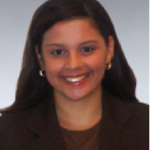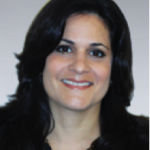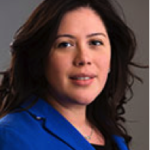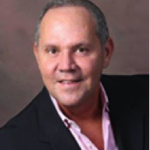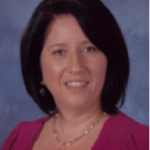This blog post features a compilation of narratives from Duane Morris staff members in celebration of Hispanic Heritage Month.
By Yolanda Arnavat-Parga
I was born in Cuba and came to the U.S. in the early 1960s along with my parents and grandparents who were born in Spain and Cuba. Being Hispanic to me means having the opportunity to live with extended family, celebrating everything with delicious food, and enjoying our culture and heritage. As a child, it meant speaking Spanish exclusively at home, honoring your parents/grandparents, embracing your family’s expectations and traditions and changing hats depending on where we were in order to fit in. Later on, it meant working hard to excel at school/work and espousing the right ethics to honor our family and trying to mitigate any erroneous preconceived ideas about Hispanics. Today, it means embracing the richness of our diverse customs, culture and heritage and being proud of the current and future contributions of all Hispanics.
By A. Venissa Fernandez
I was born in the Dominican Republic and emigrated to the United States when I was three years old. Thinking back, I had no idea how lucky I was to have parents that made the incredible sacrifice in choosing to immigrate to the U.S. coming here with very little knowledge of the culture, the rules, and even the language to raise two young children.
Being Dominican is part of my personality, interests, and tastes in life. My identity gave me a starting place, and a whole tribe of people to relate to. Coming from a big family also taught me about community, loyalty, and respect. These things are crucial to my character, and I directly attribute them to growing up in a big Dominican household. I learned at a very young age that we were different, our culture, humor, music, food, even our birthday parties were different than everyone else’s.
In New York, the Dominican culture thrives in neighborhoods like Washington Heights, where I grew up, which experienced an influx of Dominican immigrants in the 1960s. Today, as you walk through the neighborhood, you experience how rich our culture is from the Bachata and Merengue music playing out of any open apartment window or store front, to the no frills local eateries offering a taste of home, or even the famous corner store called “Bodega”, selling all the local and island favorites. Similar to what was displayed, thanks to Lin-Manuel Miranda’s Broadway musical “In the Heights”. While growing up in Washington Heights helped me appreciate my Dominican heritage, I am defined just as much, if not more so, by my life-long experiences as a New Yorker, a very special breed of person.
Hispanic Heritage Month grew out of National Hispanic Heritage Week, which President Lyndon B. Johnson signed into law in 1968. In 1987, Representative Esteban Torres pushed for a month-long commemoration. He argued that supporters of his bill “want the American people to learn of our heritage. We want the public to know that we share a legacy with the rest of the country, a legacy that includes artists, writers, Olympic champions, and leaders in business, government, cinema, and science. [The month-long celebration] will allow our nation to properly observe and coordinate events and activities to celebrate Hispanic culture and achievement.” Torres’ bill did not pass, but a year later, a similar bill – proposed by Senator Paul Simon – did, with President Ronald Reagan signing it into law on August 17, 1988.
Unlike Black History Month, Women’s History Month, and Asian Pacific American Heritage Month, Hispanic Heritage Month begins mid-way through September. This is because September 15 and 16 mark the independence days of Honduras, Nicaragua, Guatemala, El Salvador, Costa Rica, and Mexico.
Hispanic Heritage Month, serves as a means for all members of the Latino community, to connect with their heritage showcasing the beauty of our culture, and different traditions of other Hispanic countries.
By Josephine F. Garcia
I reminisce on the times my Abuelo Santiago and Abuela Carmen would tell me stories while growing up. My Abuelo had established his own milk company in Cuba with hard work and dedication. It was one of his most gratifying accomplishments, and one he was forever proud of in his life. My Abuela raised three beautiful daughters and was a dedicated housewife. While listening to their history, it was evident how much they loved the Country they had left behind. These anecdotes of their life in Cuba demonstrated to me the values and principles I live by today.
As a first generation Cuban-American, I was blessed with the opportunity to live with my grandparents alongside my parents for many years. It is a Cuban tradition for the family to all live together. The characteristics that were instilled in my family and I reflect the lives of my grandparents in Cuba. They were and will eternally remain my foundation. My grandparents were the humblest people I have ever known. They lived a life of honesty, trust, loyalty and dedication to their family and work.
Being bi-lingual has given me an advantage in my personal and work life, as we live in a diverse America where there are so many people of other Latin cultures and who speak the Spanish language. I love everything about the Cuban culture, and I will always be proud of being Cuban. I will forever keep my Cuban heritage alive and I have also taught my children to continue the legacy.
By Andrew J. Hanna
I am a Chicano. A Chicano is a chosen identity for people of Mexican descent born in the States. My mother, who was born in Mexico, made it her mission to ensure that her children were raised to understand both of the cultures in which they were born. Being born and raised bi-racially has allowed me to accept and understand people that are different than me. As a person of mixed race and cultures, it has enabled me to help others in finding opportunities that lay quietly waiting to be discovered. Most importantly, being bi-racial has allowed me to witness the beauty of people and their contributions to our society and world.
By Sofia Lowenberg
There’s a broad range for what it means to be Hispanic in the U.S. It applies to someone who’s fourth-generation American, or, in my case, to someone who’s second generation (though there is some debate what first and second generation means). My first language was Spanish. My mother, Maria, was born in Bogotá, Colombia and my father, Fernando, in Guatemala City, Guatemala— both came to the USA in the early 60’ as adults, met in New York, and married in 1974. Both my parents came here to live the American Dream and they are extremely proud of both my brother and me. A New Yorker, born and raised in Queens, NY, I am fortunate enough to have obtained an education in the world’s finest city.
My paternal grandparents were from Spain. As a gift for my mother’s 75th birthday, my mother and I went on a tour through Spain. We both felt a connection to Seville and Salamanca and I loved the vibe in Barcelona and Costa del Sol.
The Hispanic experience is incredibly diverse, it’s not just one point of view or perspective. For me, Hispanic Heritage Month serves as a means for all members of the Hispanic community, no matter their background, to connect with their heritage. I am sharing with my husband and my son the rich Hispanic culture, including teaching them Spanish and my love of music and dancing.
By Francisco Maldonado
I was born and raised in Puerto Rico. We are a friendly, family-oriented people who enjoy a rich Spanish influence. Being Hispanic has played a huge role in defining who I am and how I view the world. Of utmost importance are our really close-knit families and frequent family gatherings along with the Hispanic traditions that have shaped my experiences growing up. What better binds the family than food. Traditions such as Noche Buena (Christmas Eve), Año Viejo (New Years’ Eve), Los Reyes Magos (Three Kings’ Day), Fiestas de las Calles San Sebastián, Fiestas Patronales, Quinceañeros (Sweet Fifteen) to name a few. Something that cannot be absent during these family gatherings is delicious traditional food.
The taste and aromas of places, families and our histories are anchored in our memories by the foods and traditions we enjoy. My best memories go way back with my mother in the kitchen and my sisters hanging around watching her cook our daily meals and listening to what transpired during the day. The love and joy with which she cooked for us daily and the preparation of our traditional feasts significantly impacted me. Cooking was such a predominant part of our daily life that I chose to get a degree in Culinary Arts many years after college. As a result of my culinary training along with my childhood experiences and spending time in the kitchen with my mother, I have been able to mix and adapt my cuisine and eating habits. I cherish the memories of cooking special recipes passed down by my grandmother, my mother, and my aunts; I like to share them now with my family and friends. Nothing is more flavorful and portrays my Hispanic heritage more than a Pernil con Arroz con Gandules (Roast Pork with Rice and Pigeon Peas) for our Christmas Eve parties or mom’s Arroz relleno con Pollo (Baked Chicken and Rice) for special occasions, or Bistec con Arroz con Habichuelas y Tostones (Beefsteak, Rice and Beans and Fried Plantains), after work. I enjoy integrating these traditions in the different events I plan for the Miami and Boca Raton offices as it is fulfilling sharing and teaching others about them.
By Diane Martinez
I am proud to be Mexican-American. I was born in East Los Angeles, a predominately Hispanic side of the city. My parents were both born in the United States but my grandparents were of Mexican, Native American and European descent.
My father and father-in-law were born in poverty in 1932. They both proudly served this country at a time when there was little opportunity. That experience opened the door for them to have successful careers and to provide a better living for their families than they had ever known. My father in-law was one of sixteen children. He grew up with little but his parents taught their children about devotion to God. The children learned to dance with each other and to have a joy for living. My father spent his entire career working on the very first space shuttle and subsequent shuttles for space exploration until he retired. He says that growing up he never imagined being a part of something so extraordinary.
What does it mean to identify with my heritage? It means that I am part of a people who have persevered and worked hard to succeed and live the American dream. We have strong family ties and family pride. We have faith, loyalty and passion and apply those traits to everything we do personally and professionally. My relatives have worked the land, served this country, and fought for civil rights. We are a family of humble beginnings, yet every generation has worked hard to succeed
It doesn’t hurt that we also make great music and some of the world’s best food!
By Laura I. Medina
Being a bilingual Puerto Rican in America comes with both advantages as well as some unfortunate “disadvantages.” Growing up in a Puerto Rican household, there is a dynamic culture such as amazing Spanish food, salsa dancing and telenovelas I grew up watching with my mom and my abuela (grandmother) just to name a few. My family stressed the importance of working hard every day, doing well in school so that I can get a scholarship to go to college (we didn’t have the money to pay for it), and I also found playing soccer to be an outlet. All of these things were vital to my success in America is what I taught.
Hispanics are the largest minority in the United States and only growing. Being fluent in reading and writing another language should come as a competitive advantage especially in the workforce. However, I quickly learned that this isn’t always the case as those same traditions I had embraced weren’t always embraced outside of home. As a child I remember struggling with balancing sticking with my culture and traditions, but at the same time trying not to show my roots to the world outside too much due to my experiences with prejudice. My brother, sister, and I only spoke only Spanish in the household then switched to English when we went to school.
As I got older, I learned that this carries over to the workforce and that it wasn’t just me. Hispanics suppress parts of their personas at work such as appearance and communication style to better fit in with the mainstream. I found myself doing the same to try to “make it” or get ahead. I was hiding the very things that make me who I am. Today I know that a large part of my success and drive comes from the morals and values from my Hispanic culture driven to me at a young age. It is my identity. If we instead embrace our differences and utilize them, we can actually be more competitive in a global market rather than trying to fit in to the one that currently exists


